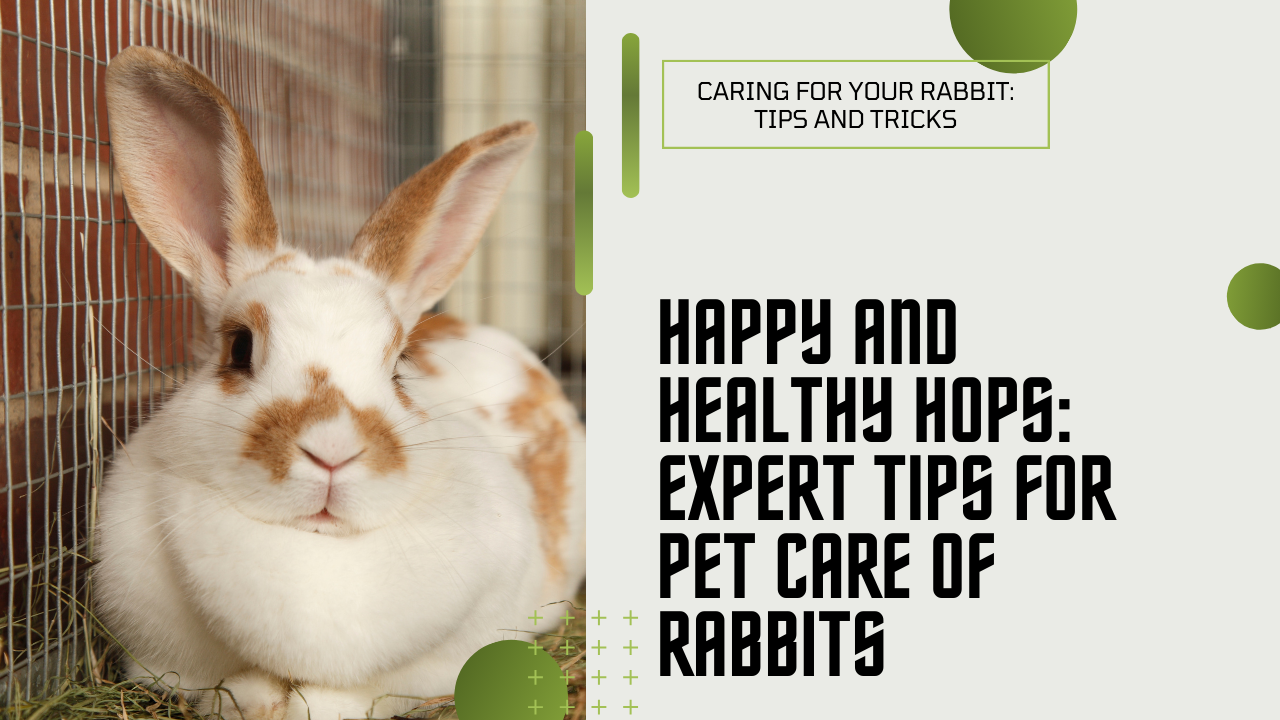Last Updated on May 24, 2024 by Dog Lover
Happy and Healthy Hops: Expert Tips for Pet Care of Rabbits
Rabbit Pet Care Basics
When it comes to caring for rabbits as pets, there are a few basic principles that every rabbit owner should be familiar with.
From introducing rabbits as pets to understanding their behavior and the importance of proper care, these fundamentals are essential for ensuring the well-being of your furry friend.
Introducing Rabbits as Pets
Bringing a rabbit into your home as a pet is an exciting experience. Before doing so, it’s important to consider the responsibilities and commitment that come with rabbit ownership.
Rabbits can live for several years and require proper care, attention, and a safe environment to thrive. Researching about rabbits and their specific needs is crucial to ensure a smooth transition for both you and your new furry companion.
Understanding Rabbit Behavior
Rabbits have unique behaviors that are important to understand in order to provide them with the best care. They are naturally curious and social animals, and many enjoy human interaction when properly introduced and handled.
However, rabbits can also be sensitive and easily stressed, so it’s important to create a calm and comfortable environment for them. Learning about rabbit body language and behavior will help you better understand their needs and provide appropriate care.
Importance of Proper Care
Proper care is essential for the health and happiness of your rabbit. This includes providing a suitable habitat, a balanced diet, regular veterinary check-ups, grooming, and enrichment activities.
By meeting their physical and emotional needs, you can ensure that your rabbit lives a happy and fulfilling life as your beloved pet.
Remember, owning a pet comes with responsibilities. If you’re unable to provide the time and care that rabbits require, consider alternatives such as volunteering at or supporting local animal shelters or seeking out pet care services for your rabbit’s well-being.
For more pet care tips and advice, explore our other articles on pet care tips, pet care products, and pet care advice.
By familiarizing yourself with these rabbit pet care basics, you will be better prepared to provide a loving and nurturing environment for your furry friend.
Stay tuned as we explore more specific aspects of rabbit care, including housing and environment, nutrition and diet, health and wellness, grooming and hygiene, and enrichment and playtime.
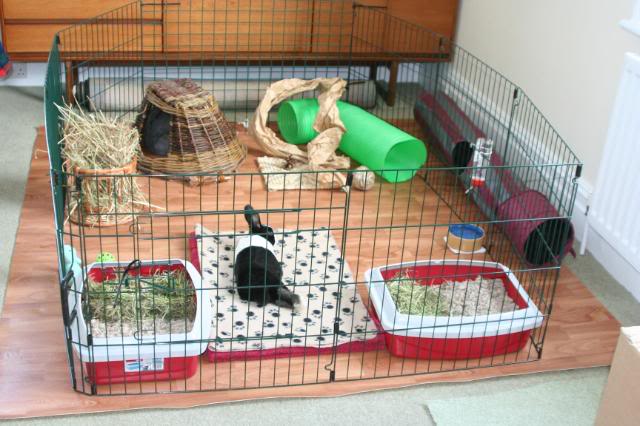
Housing and Environment
Providing a suitable habitat and environment is essential for the health and well-being of your pet rabbit.
In this section, we will discuss the importance of choosing the right habitat and setting up a safe and comfortable space for your furry friend.
Choosing the Right Habitat
When selecting a habitat for your rabbit, it’s crucial to consider their size, comfort, and natural behaviors. The most common options for rabbit housing are hutches and cages.
However, it’s important to note that rabbits need ample space to move around and exercise. A cramped or confined living area can negatively impact their physical and mental health.
Ideally, choose a hutch or cage that provides enough room for your rabbit to stretch, hop, and stand on their hind legs. The habitat should be at least four times the size of your rabbit, allowing them to move freely.
Additionally, opt for a habitat with solid flooring to prevent injuries to their delicate feet. Wire-bottom cages should be avoided or lined with a solid surface to protect your rabbit’s feet.
Setting Up a Safe and Comfortable Space
Once you have chosen the right habitat for your rabbit, it’s time to set up a safe and comfortable space for them.
Here are some key considerations:
- Bedding: Choose a suitable bedding material that is safe, absorbent, and comfortable for your rabbit. Avoid cedar and pine shavings, as these can be harmful to their respiratory system. Instead, opt for paper-based or straw bedding.
- Hideouts: Rabbits are naturally burrowing animals and require a space where they can retreat and feel secure. Provide hideouts, such as tunnels or small boxes, where they can rest and relax.
- Litter Box: Train your rabbit to use a litter box to keep their living area clean. Place a litter box filled with rabbit-safe litter in one corner of their habitat, away from their food and sleeping areas.
- Toys and Stimulation: Rabbits are intelligent and curious animals that require mental stimulation. Provide toys, such as tunnels, chew toys, and puzzle feeders, to keep them entertained and prevent boredom.
- Ventilation and Temperature: Ensure proper ventilation in your rabbit’s habitat to maintain fresh air circulation. Avoid placing the habitat in direct sunlight or drafts. Additionally, maintain a comfortable temperature range between 60°F and 70°F (15°C and 21°C) to prevent overheating or chilling.
Remember, your rabbit’s habitat should be cleaned regularly to maintain hygiene. Remove any soiled bedding, clean the litter box, and sanitize the food and water bowls.
For more detailed information on rabbit housing and other pet care topics, check out our pet care tips and pet care advice articles.
By providing a suitable habitat and creating a safe and comfortable environment, you can ensure that your pet rabbit feels secure and happy in their living space.
Regularly interact with your rabbit, provide mental and physical stimulation, and seek professional guidance from pet care services when needed.
Nutrition and Diet
Proper nutrition is vital for the health and well-being of your pet rabbit. Providing a balanced and appropriate diet is key to ensuring they live a happy and healthy life.
In this section, we will explore the essentials of a rabbit’s diet and discuss the importance of a feeding schedule and appropriate portions.
Essentials of a Rabbit’s Diet
A rabbit’s diet should primarily consist of high-quality hay, fresh vegetables, and a controlled amount of pellets. The majority of their diet should be made up of hay, as it is a crucial source of fiber that aids in digestion and maintains proper dental health.
Timothy hay is a popular choice for rabbits, but other options such as orchard grass or meadow hay can also be provided. It’s important to ensure the hay is fresh and free from dust or mold.
In addition to hay, fresh vegetables should be offered daily to provide essential nutrients and variety. Leafy greens such as kale, romaine lettuce, and spinach are excellent choices.
However, it’s important to introduce new vegetables gradually to prevent any digestive upset. Offer a variety of vegetables to ensure a well-rounded diet. Avoid feeding your rabbit high-sugar or starchy vegetables, as these can lead to health issues.
Pellets should be given in controlled portions to supplement the hay and vegetable diet. Look for high-quality pellets specifically formulated for rabbits, as they provide additional vitamins and minerals.
However, it’s important not to overfeed pellets, as they can lead to obesity and other health problems. Consult with your veterinarian to determine the appropriate amount of pellets based on your rabbit’s age, weight, and activity level.
| Food | Frequency | Quantity |
|---|---|---|
| Hay | Unlimited | 1-2 handfuls |
| Fresh Vegetables | Daily | 1-2 cups |
| Pellets | Controlled | As recommended by vet |
Feeding Schedule and Portions
Establishing a consistent feeding schedule is essential for your rabbit’s well-being. Rabbits thrive on routine, so it’s important to provide regular meals at the same time each day. This helps to regulate their digestive system and prevent overeating.
Divide your rabbit’s daily food intake into two meals, one in the morning and one in the evening. This allows them to graze and digest their food more efficiently. Ensure that fresh hay is available at all times, as rabbits need to continuously chew to maintain healthy teeth.
When it comes to portion sizes, it’s important to be mindful of your rabbit’s weight and activity level. Overfeeding can lead to obesity, while underfeeding can result in malnutrition. Consult with your veterinarian to determine the appropriate portion sizes based on your rabbit’s unique needs.
Remember to always provide fresh, clean water in a spill-proof bowl or a sipper bottle. Change the water daily to ensure its freshness and cleanliness.
By following a proper feeding schedule and providing the right portions, you can ensure that your rabbit receives the necessary nutrients for optimal health.
Proper nutrition and a well-balanced diet are just one aspect of caring for your beloved pet rabbit. To learn more about other essential aspects of rabbit care, be sure to check out our articles on pet care services, pet care tips, and pet care products.
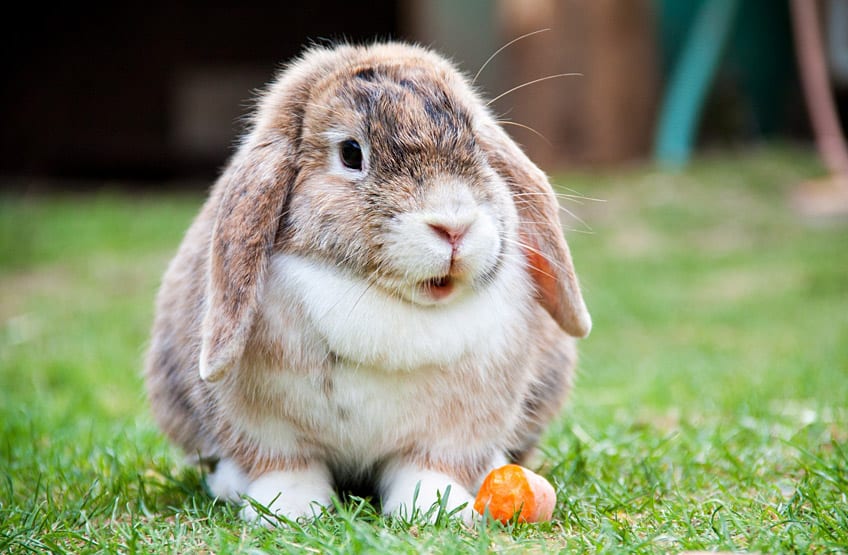
Health and Wellness
Ensuring the health and well-being of your pet rabbit is essential for their happiness and longevity. In this section, we will explore the importance of regular veterinary check-ups, common health issues that rabbits may face, and signs of a healthy rabbit.
Regular Veterinary Check-ups
Just like any other pet, rabbits require regular veterinary check-ups to monitor their overall health and catch any potential issues early on. It is recommended to schedule annual wellness exams with a veterinarian who specializes in small animals or exotic pets.
These check-ups allow the vet to assess your rabbit’s general health, provide necessary vaccinations, and address any concerns you may have.
During the check-up, the veterinarian will perform a thorough physical examination, checking your rabbit’s eyes, ears, teeth, heart, lungs, and overall body condition. They may also recommend additional diagnostic tests, such as bloodwork or fecal exams, to ensure your rabbit is in optimal health.
Regular veterinary check-ups are crucial for maintaining your rabbit’s well-being and preventing potential health complications.
Common Health Issues in Rabbits
While rabbits are generally hardy animals, they can still be susceptible to certain health issues. Being aware of these common health problems can help you identify any potential signs or symptoms early on.
Some common health issues in rabbits include:
| Health Issue | Symptoms |
|---|---|
| Dental Problems | Loss of appetite, drooling, weight loss, difficulty eating |
| Gastrointestinal Stasis | Reduced or no appetite, bloating, decreased or absent fecal output |
| Respiratory Infections | Sneezing, nasal discharge, difficulty breathing |
| Hairballs | Reduced appetite, lethargy, decreased fecal output |
| Urinary Tract Disorders | Straining to urinate, blood in urine, frequent urination |
If you notice any unusual behavior or symptoms in your rabbit, it is important to consult with a veterinarian as soon as possible. Early detection and treatment can greatly improve the prognosis and overall well-being of your furry friend.
Signs of a Healthy Rabbit
As a responsible rabbit owner, it’s crucial to be familiar with the signs of a healthy rabbit. Monitoring these indicators on a regular basis can help you ensure that your rabbit is in good health.
Here are some signs of a healthy rabbit:
- Alert and active behavior
- Bright and clear eyes
- Clean and dry nose
- Shiny and well-groomed fur
- Normal eating and drinking habits
- Normal urination and fecal output
- Healthy weight and body condition
If you notice any changes in your rabbit’s behavior, appetite, or appearance, it is important to consult with a veterinarian for a proper evaluation. Prompt attention to any changes can help identify and address potential health concerns before they become more serious.
Taking proactive steps to maintain the health and wellness of your rabbit is an important aspect of responsible pet care. Regular veterinary check-ups, awareness of common health issues, and monitoring the signs of a healthy rabbit are key components in ensuring a happy and thriving bunny companion.
For additional pet care tips and advice, be sure to visit our pet care tips and pet care advice articles.
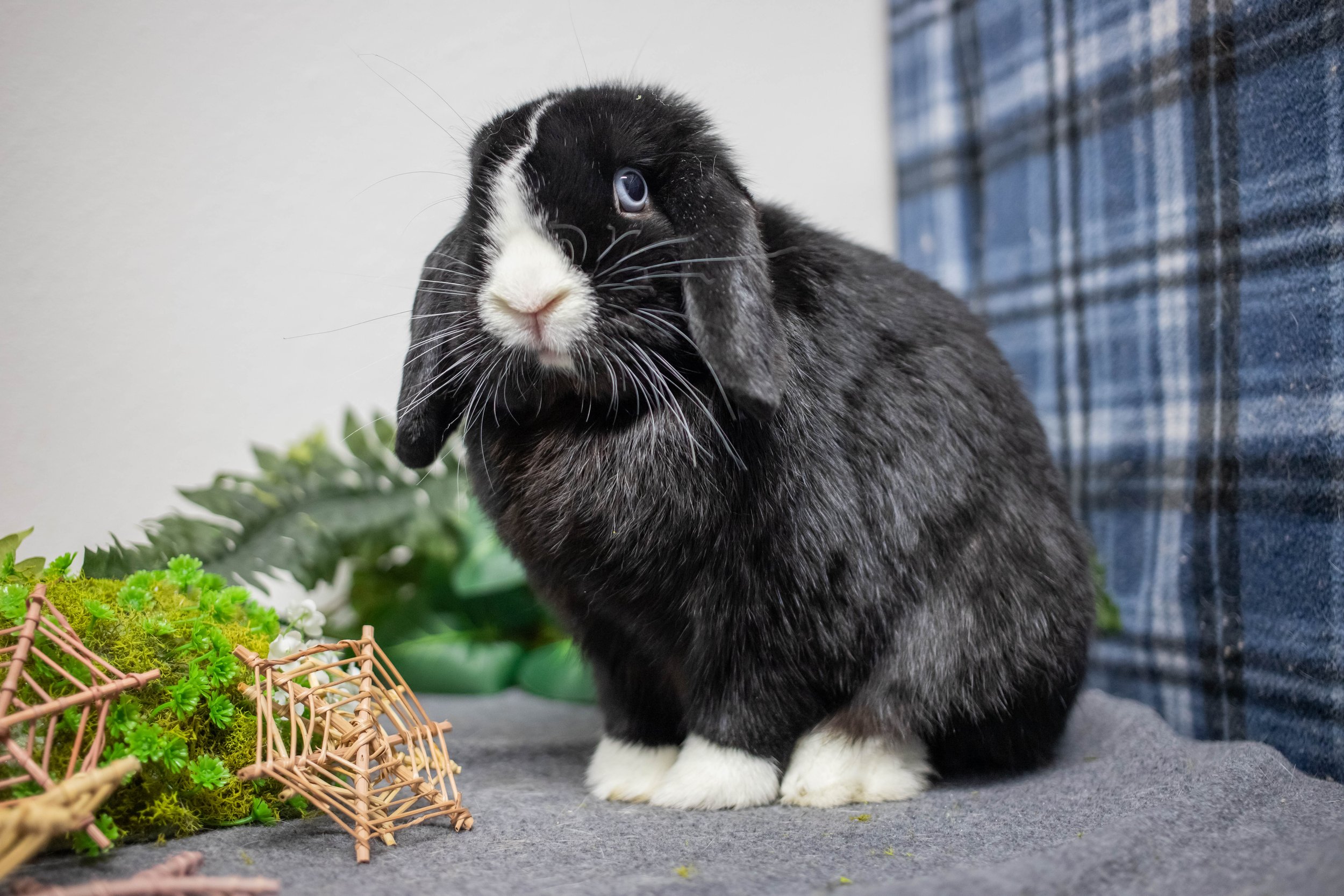
Grooming and Hygiene
Proper grooming and hygiene are essential aspects of caring for your pet rabbit. Regular grooming not only helps to keep your rabbit looking their best, but it also promotes their overall health and well-being.
In this section, we will discuss two important grooming practices for rabbits: bathing and brushing, as well as nail trimming and dental care.
Bathing and Brushing
Unlike some other pets, rabbits generally do not require frequent baths. Rabbits are fastidious groomers themselves and have a natural ability to keep their fur clean. However, there may be situations where a bath is necessary, such as if your rabbit gets into something sticky or dirty.
In such cases, it’s important to use a gentle rabbit-specific shampoo and ensure that the water is warm but not too hot. Make sure to thoroughly dry your rabbit after the bath to prevent them from getting chilled.
Brushing your rabbit’s fur is an important part of their grooming routine. Regular brushing helps to remove loose hair, prevent matting, and keep their coat in optimal condition. For rabbits with longer fur, such as Angoras, brushing should be done more frequently to prevent tangles and matting.
When brushing your rabbit, use a soft-bristled brush or a grooming mitt designed specifically for rabbits. Be gentle and mindful of their sensitive skin.
Nail Trimming and Dental Care
Nail trimming is an essential grooming task for rabbits. Overgrown nails can cause discomfort and may lead to health issues or injury. Regular nail trims help to maintain your rabbit’s mobility and prevent their nails from becoming too sharp or getting caught on objects.
If you’re unsure how to trim your rabbit’s nails, it’s best to consult a veterinarian or a professional groomer who specializes in rabbits. They can show you the proper technique and provide guidance to ensure a safe and stress-free experience for both you and your rabbit.
Dental care is another crucial aspect of rabbit grooming. Rabbits have continuously growing teeth, and proper dental care is necessary to prevent dental problems. Providing your rabbit with appropriate chew toys, such as untreated wooden blocks or hay-based toys, helps to wear down their teeth naturally.
Regular veterinary check-ups are also important to monitor your rabbit’s dental health and address any potential issues.
By incorporating bathing and brushing into your rabbit’s grooming routine and ensuring proper nail trimming and dental care, you can help keep your rabbit happy, healthy, and looking their best.
Remember to handle your rabbit gently and make grooming a positive experience for them. For more tips on pet care, check out our article on pet care tips. If you need professional assistance, consider reaching out to pet care services for expert guidance and support.
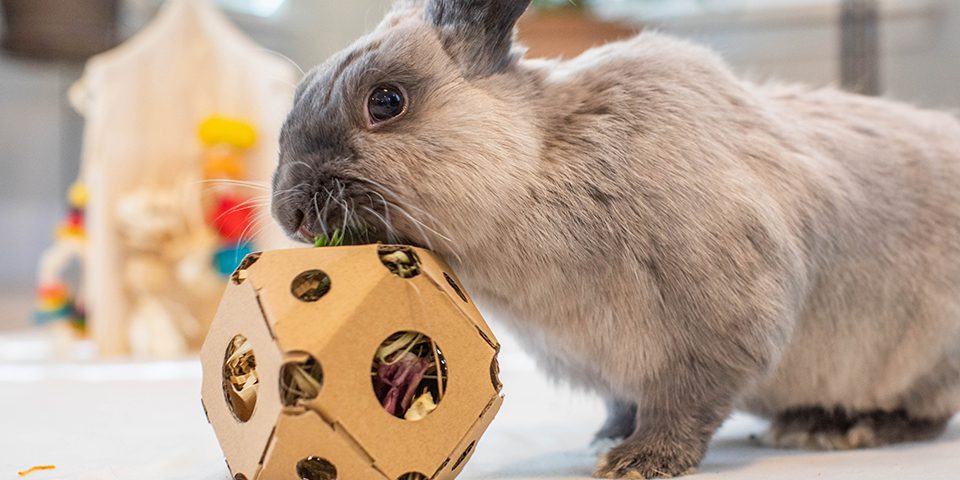
Enrichment and Playtime
Ensuring that your pet rabbit enjoys a happy and fulfilling life goes beyond providing the basics of food, shelter, and healthcare. Enrichment and playtime are essential aspects of rabbit pet care that help keep your furry friend mentally stimulated and emotionally satisfied.
In this section, we will explore some tips for providing enrichment through toys, activities, bonding, and social interaction.
Toys and Activities for Rabbits
Toys are a fantastic way to engage your rabbit’s curiosity and provide them with mental and physical stimulation.
Here are some popular toys and activities that rabbits enjoy:
- Chew Toys: Rabbits have a natural instinct to chew, so providing safe chew toys made of rabbit-friendly materials, such as untreated wood or woven grass, can help satisfy their chewing needs and prevent them from gnawing on furniture or other inappropriate items.
- Treat Dispensers: Interactive treat dispensers or puzzle toys that require your rabbit to figure out how to access a treat hidden inside can provide mental stimulation and keep them entertained.
- Cardboard Boxes: Rabbits love exploring and hopping into cardboard boxes. You can create tunnels or hide treats inside to make it even more enjoyable for them.
- Digging Boxes: Fill a shallow container with safe materials like shredded paper or hay, and let your rabbit dig and burrow to their heart’s content. This mimics their natural behavior and can be a great source of entertainment.
- Tunnels and Tubes: Providing tunnels made of cardboard or PVC pipes allows your rabbit to run through and explore, simulating a burrow-like environment.
- Obstacle Courses: Create a small obstacle course using ramps, tunnels, and jumps to encourage your rabbit to exercise and navigate different challenges.
Remember to rotate and introduce new toys regularly to keep your rabbit engaged and prevent boredom. Always supervise your rabbit during playtime to ensure their safety and remove any hazardous items from their reach.
Bonding and Social Interaction
Rabbits are social animals and thrive on companionship. While they can form strong bonds with humans, providing opportunities for them to interact with other rabbits or even other well-suited pets can greatly enrich their lives.
Here are some ways to promote bonding and social interaction:
- Pairing Rabbits: If you have a single rabbit, consider adopting another compatible rabbit as a companion. Proper introductions and gradual bonding are necessary to ensure they get along well.
- Supervised Playdates: If you have friends or family with rabbits, supervised playdates can provide socialization opportunities for your rabbit. Make sure the rabbits are introduced in a neutral space and observe their interactions closely.
- Human Interaction: Spending quality time with your rabbit through gentle petting, grooming, and providing positive reinforcement can strengthen your bond. Rabbits enjoy being talked to and appreciate gentle affectionate gestures.
- Exploration Time: Allow your rabbit to explore safe areas outside their enclosure, such as rabbit-proofed rooms, under supervision. This gives them the chance to exercise, hop around, and investigate new surroundings.
Remember, every rabbit is unique, and their preferences for toys, activities, and social interaction may vary. Pay attention to their individual needs and behaviors to provide the best enrichment and playtime experiences.
By incorporating toys, activities, and opportunities for bonding and social interaction into your rabbit’s routine, you can ensure that they lead a happy and fulfilling life.
